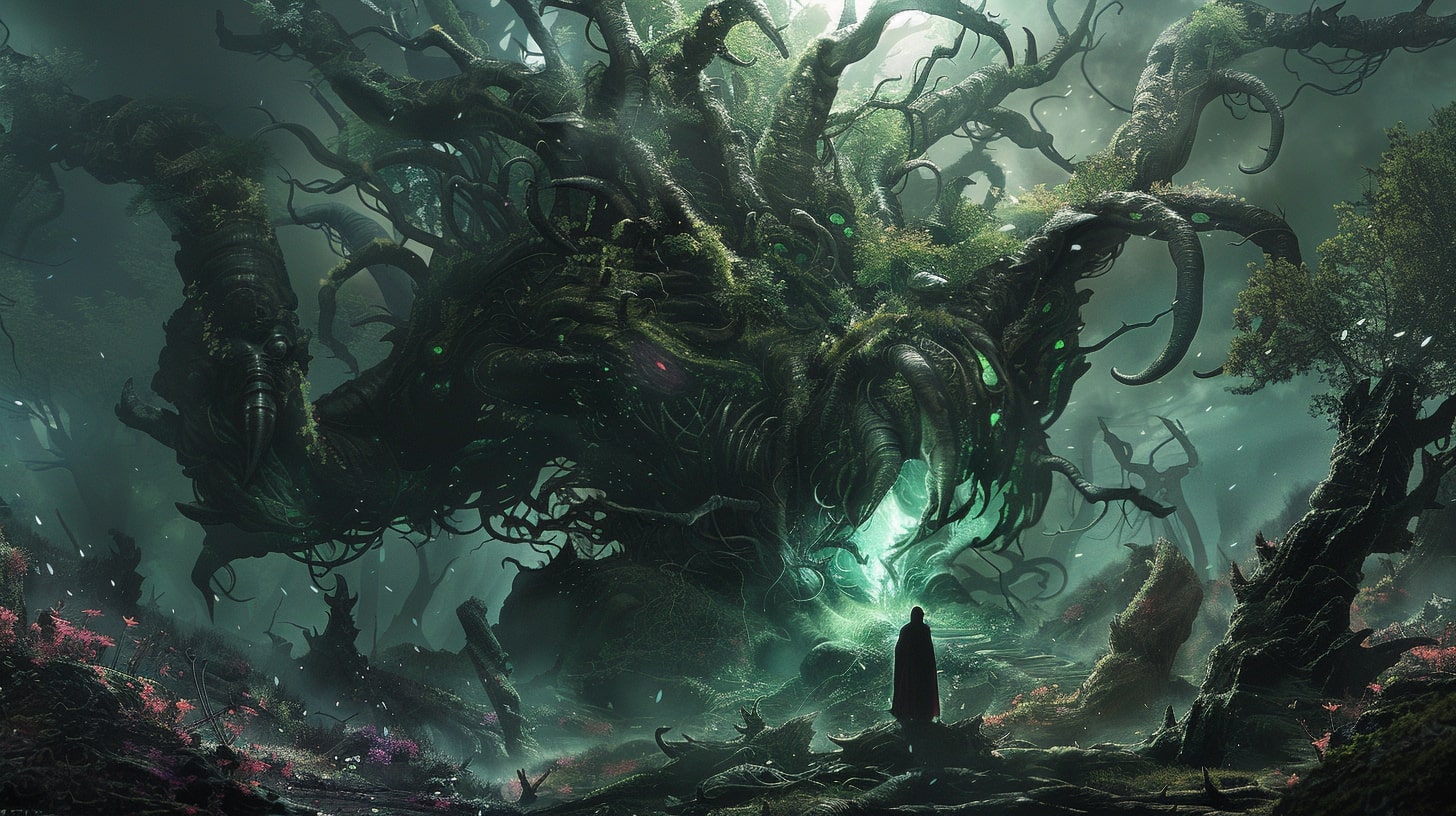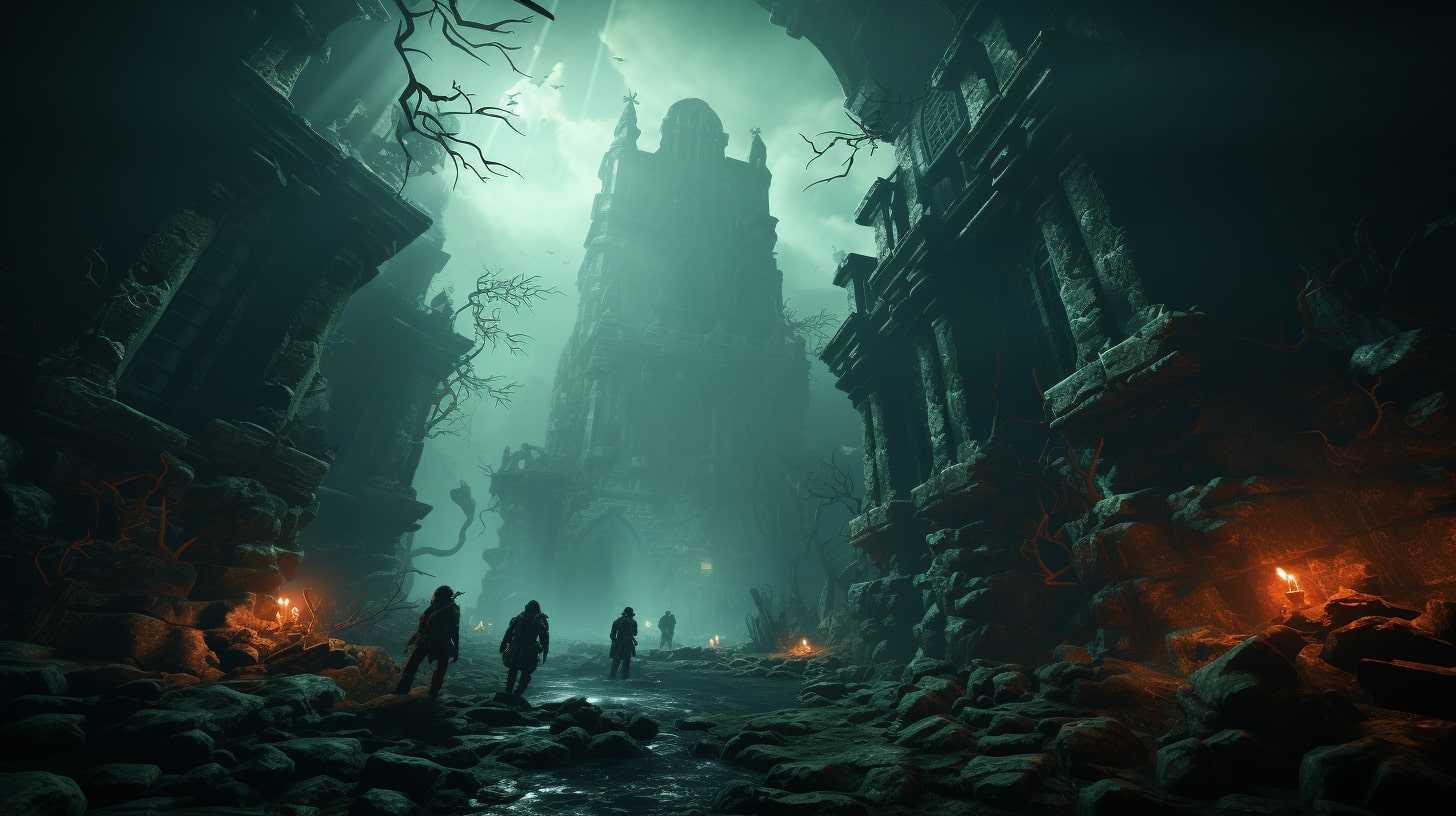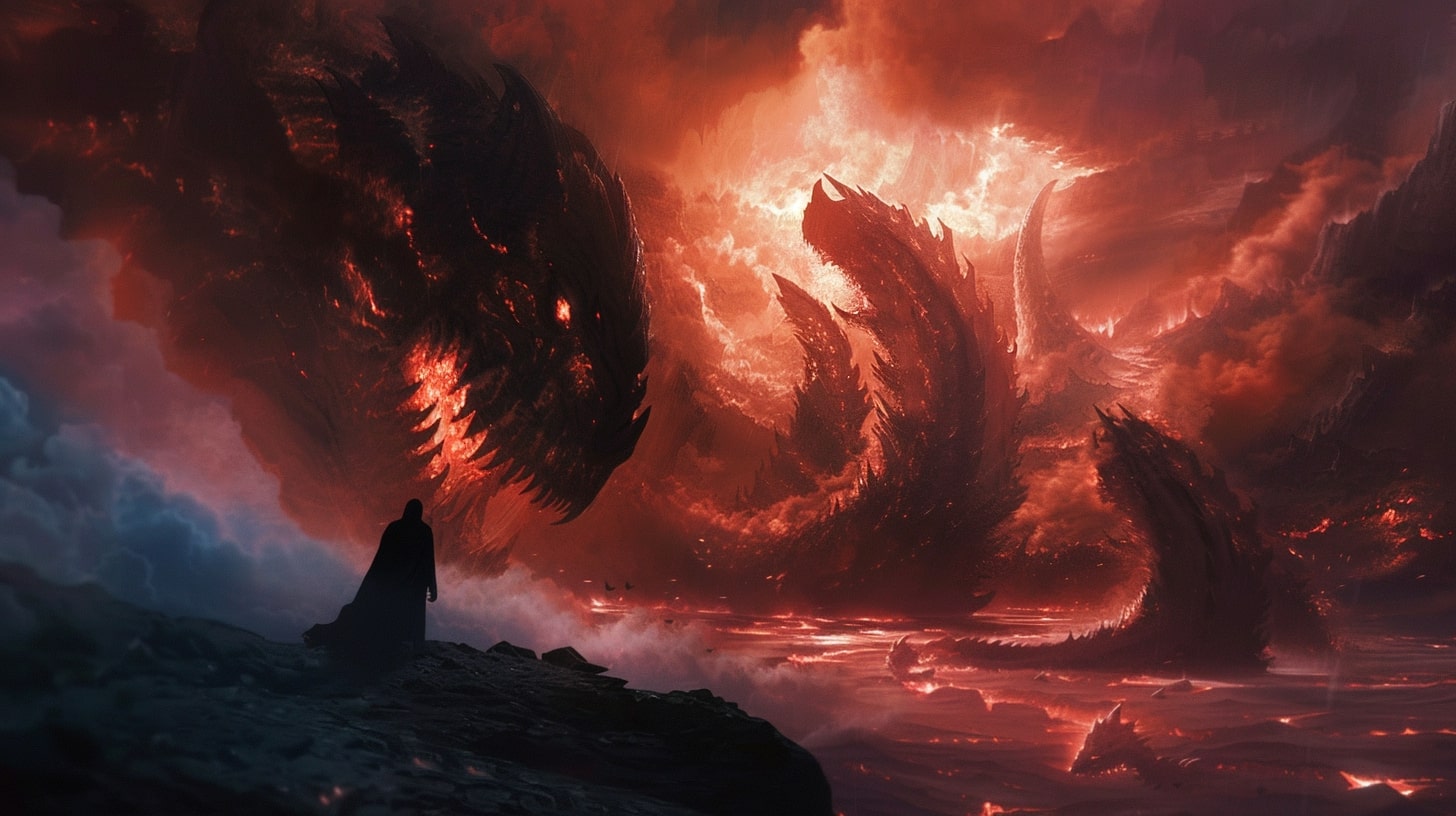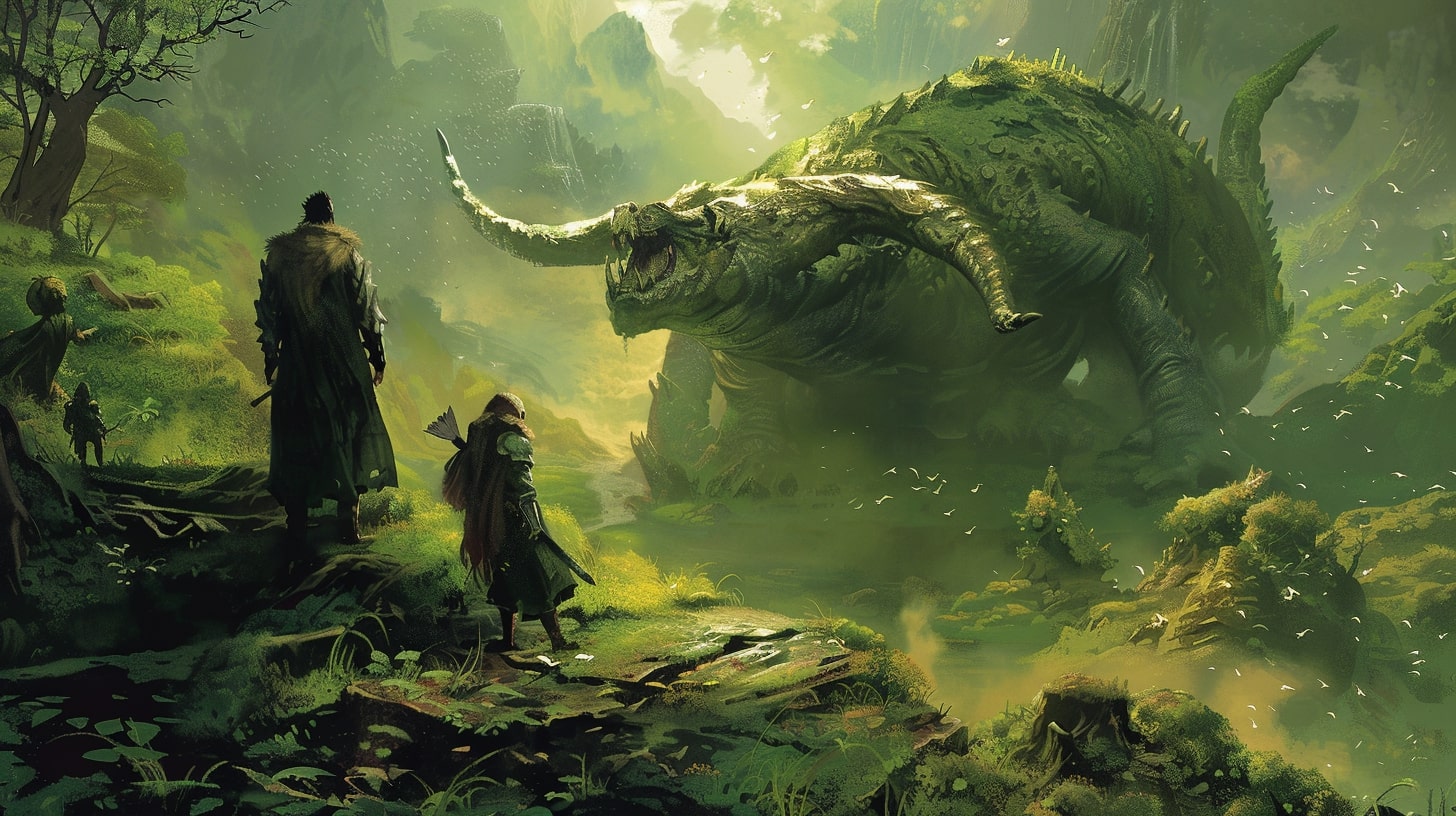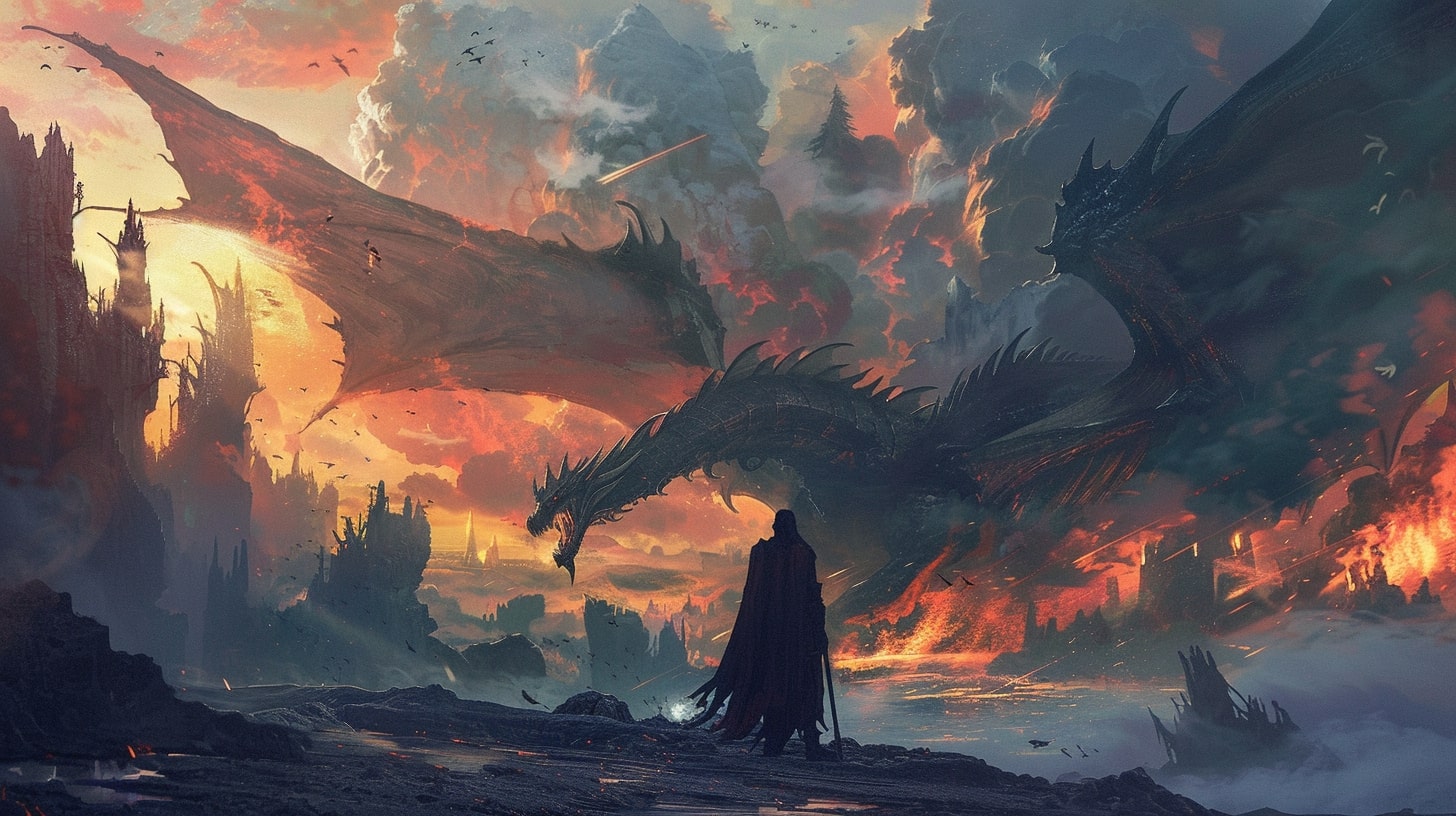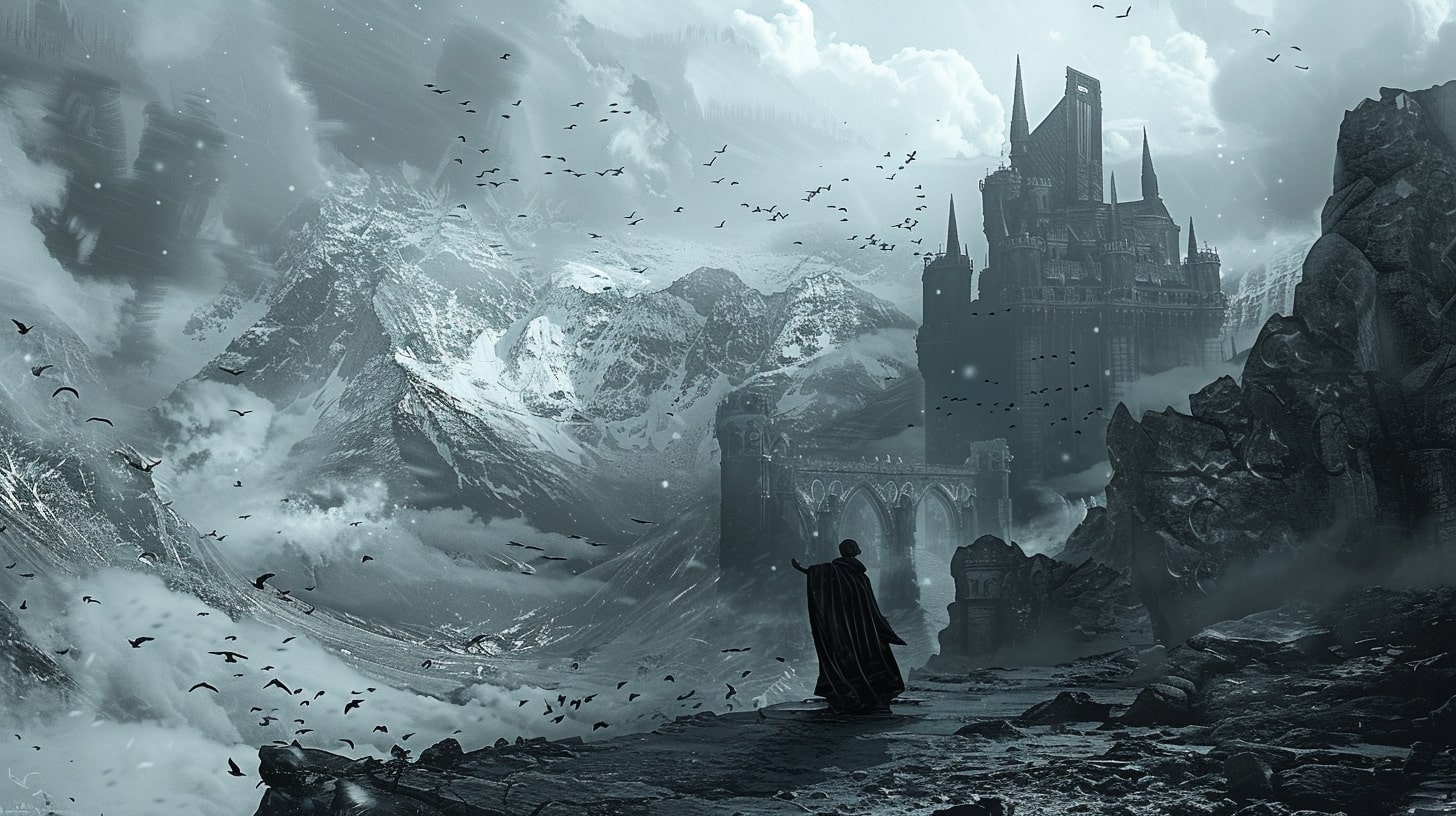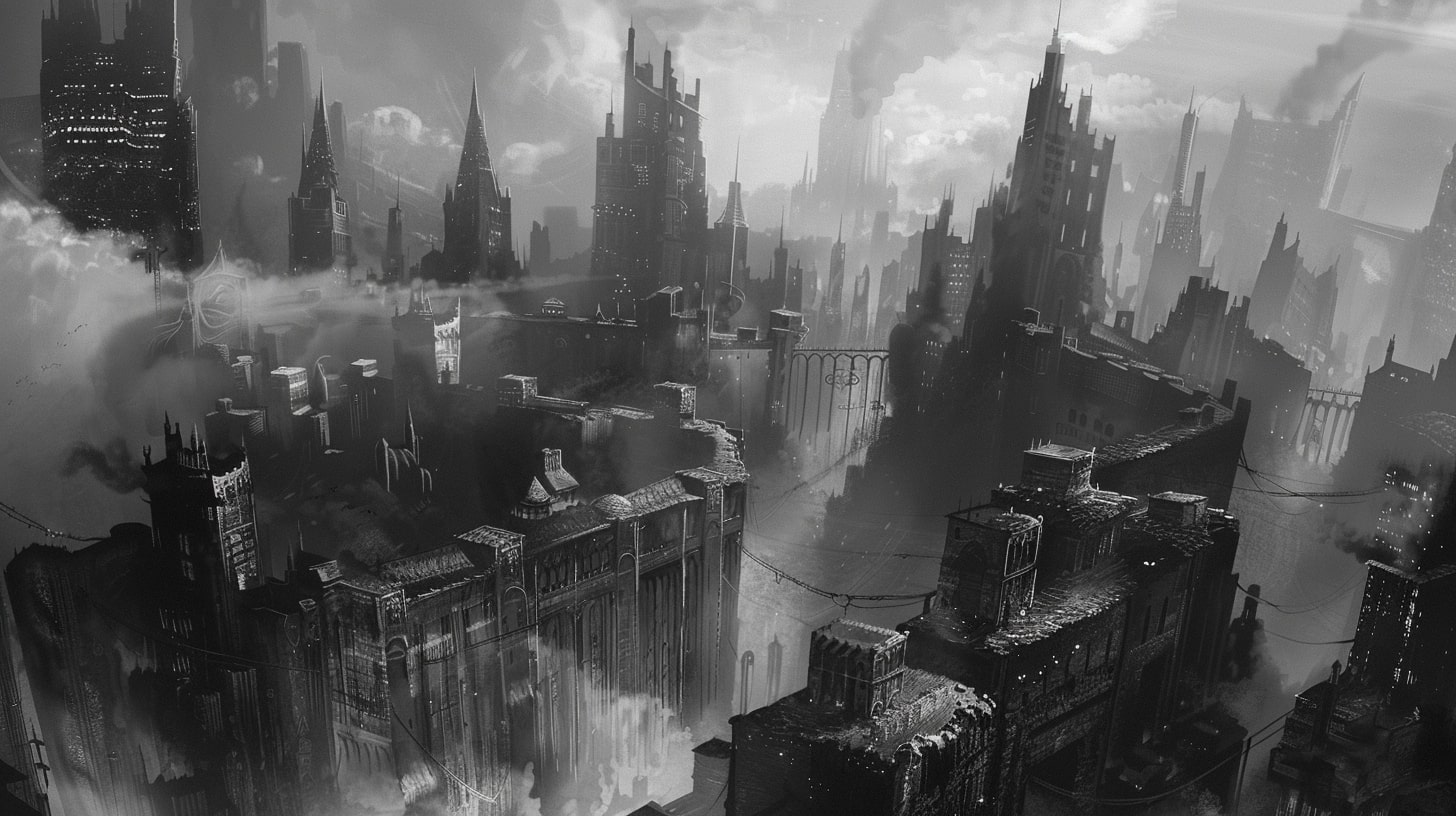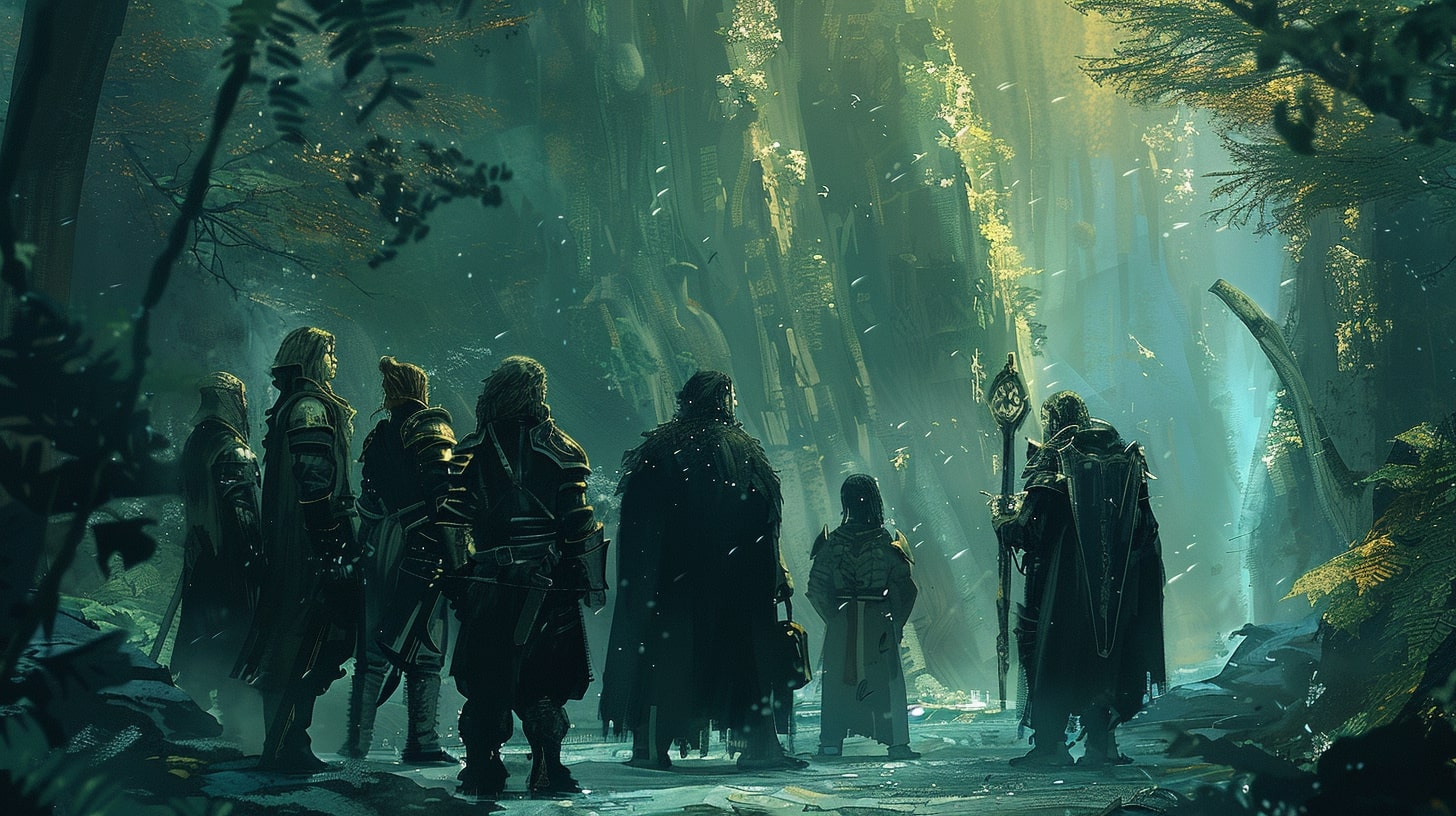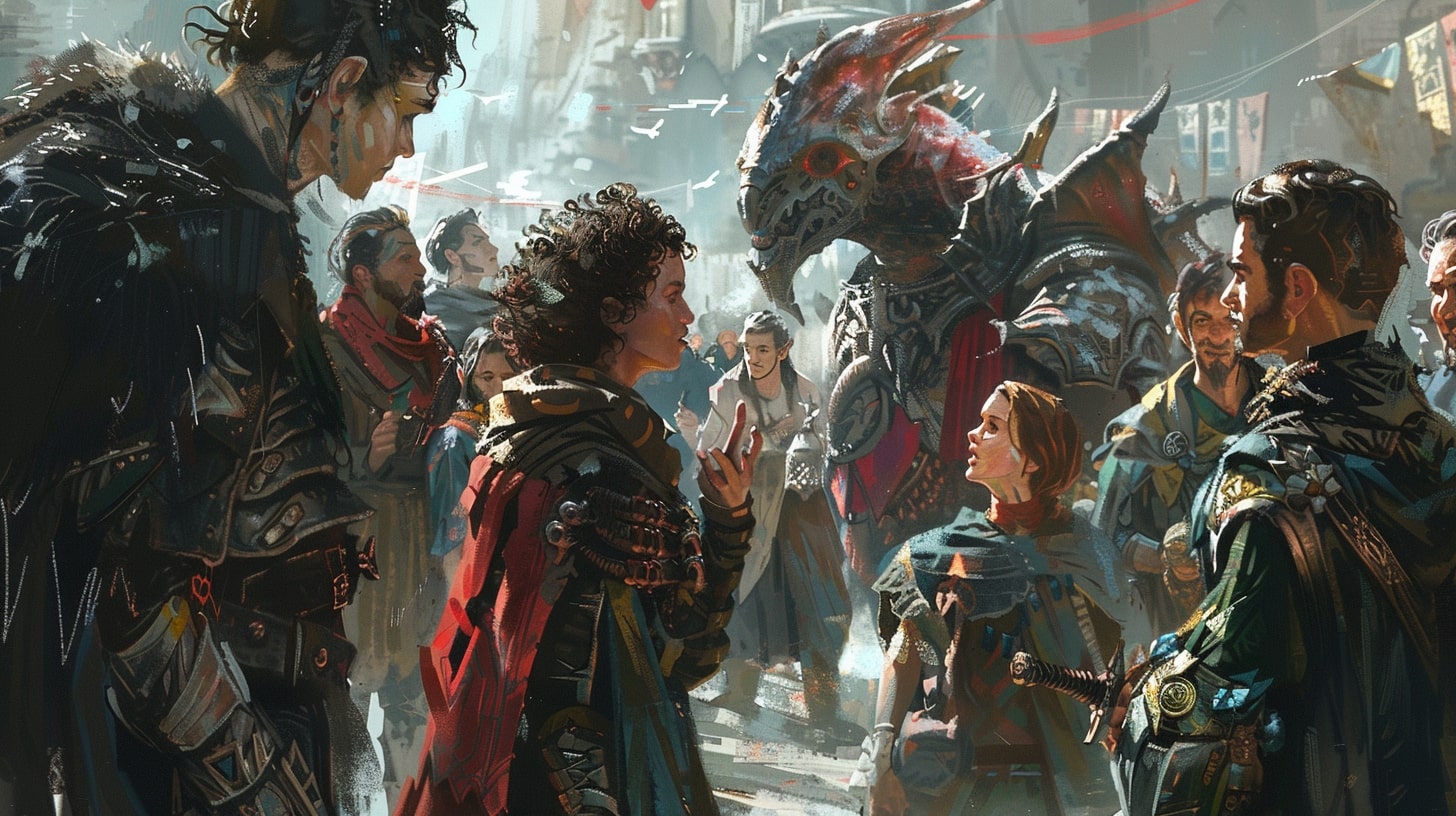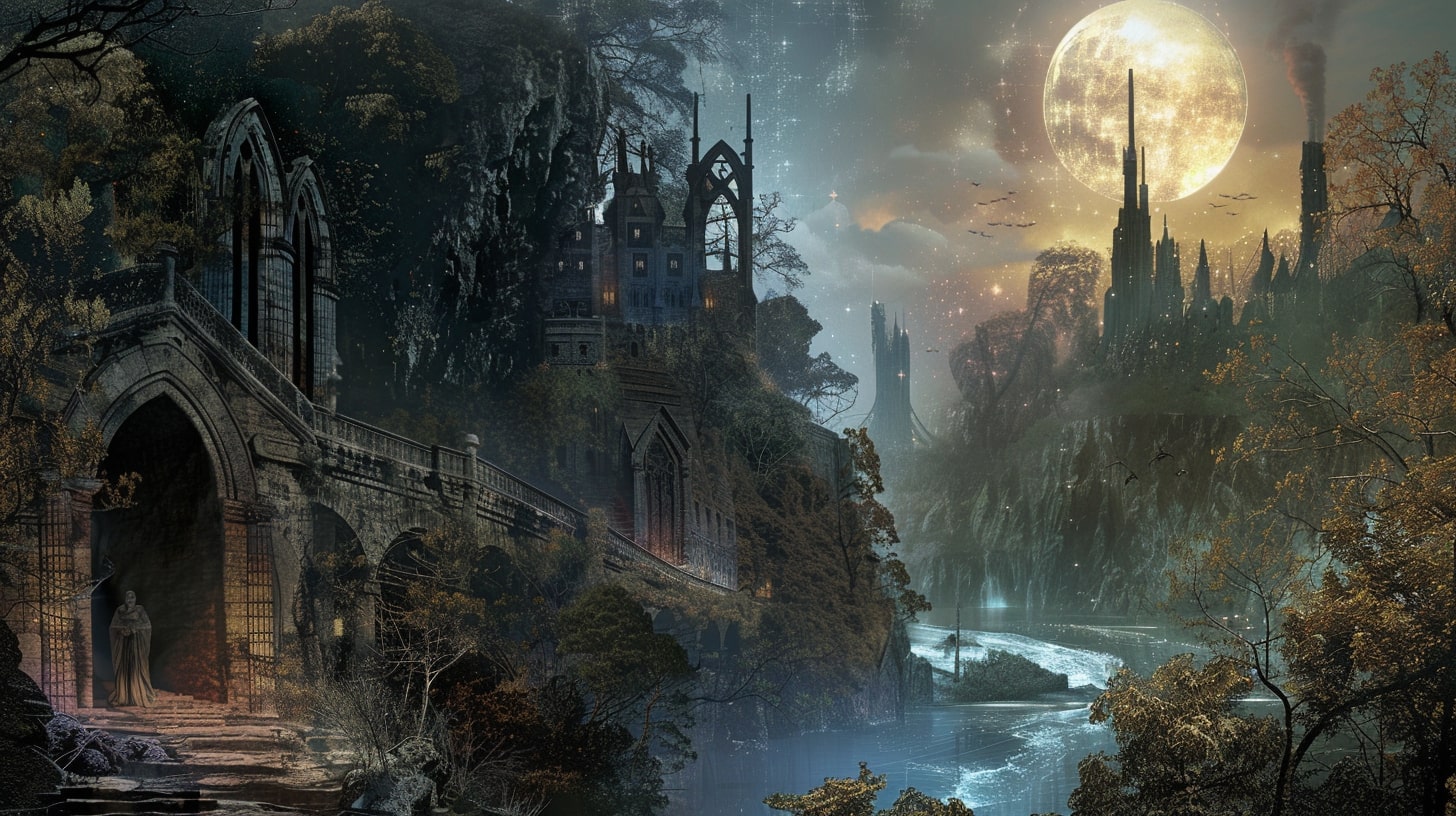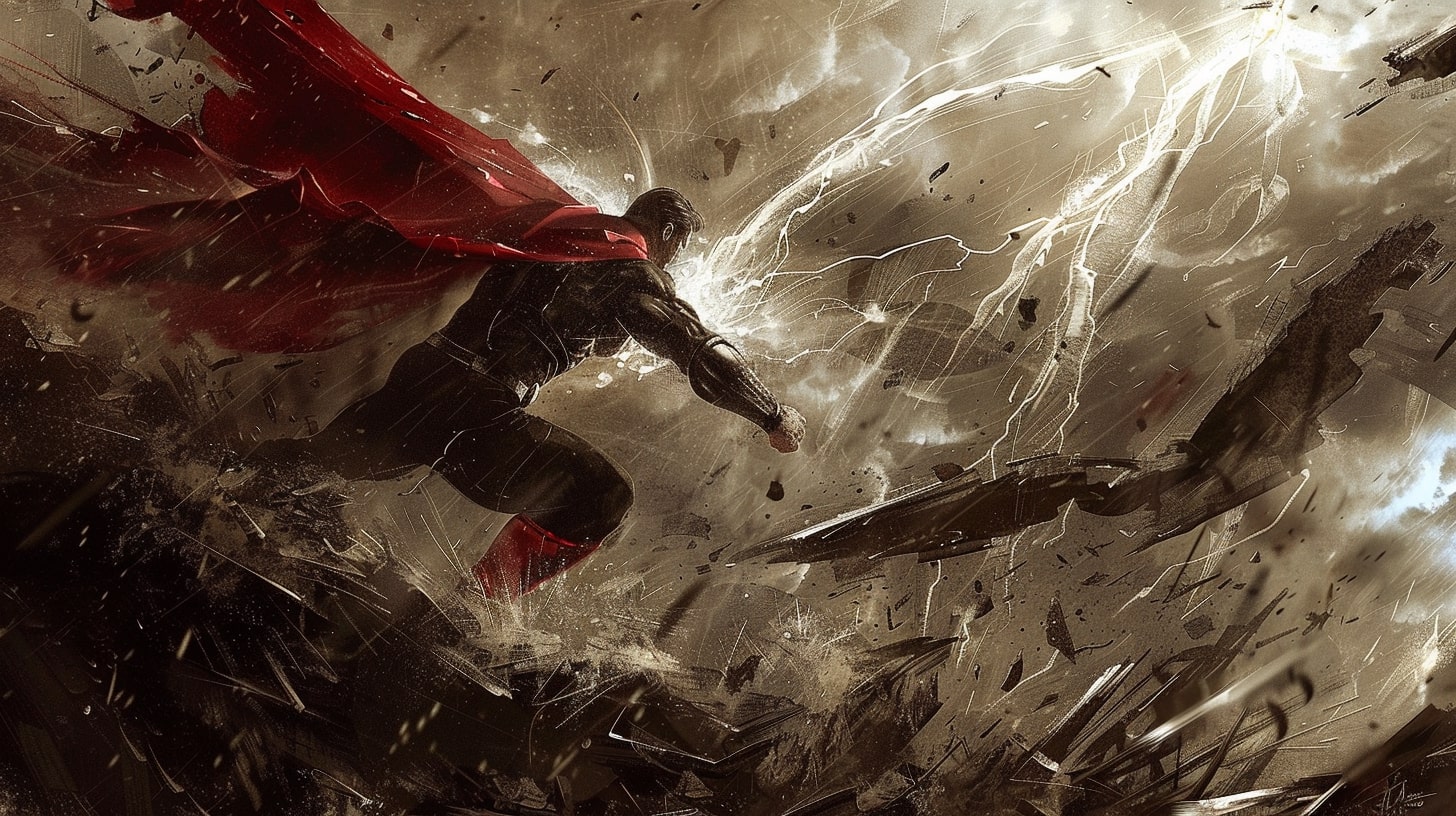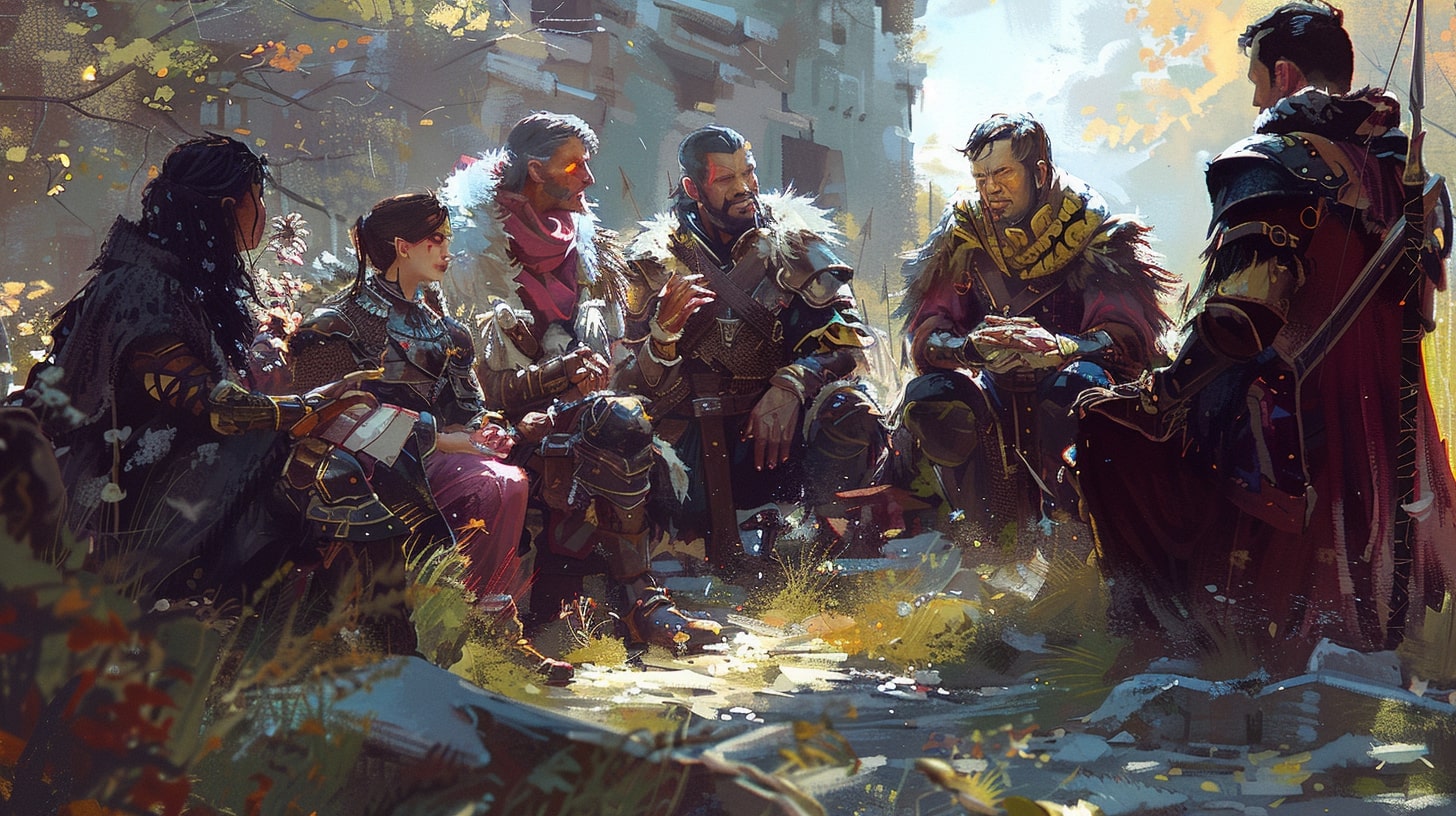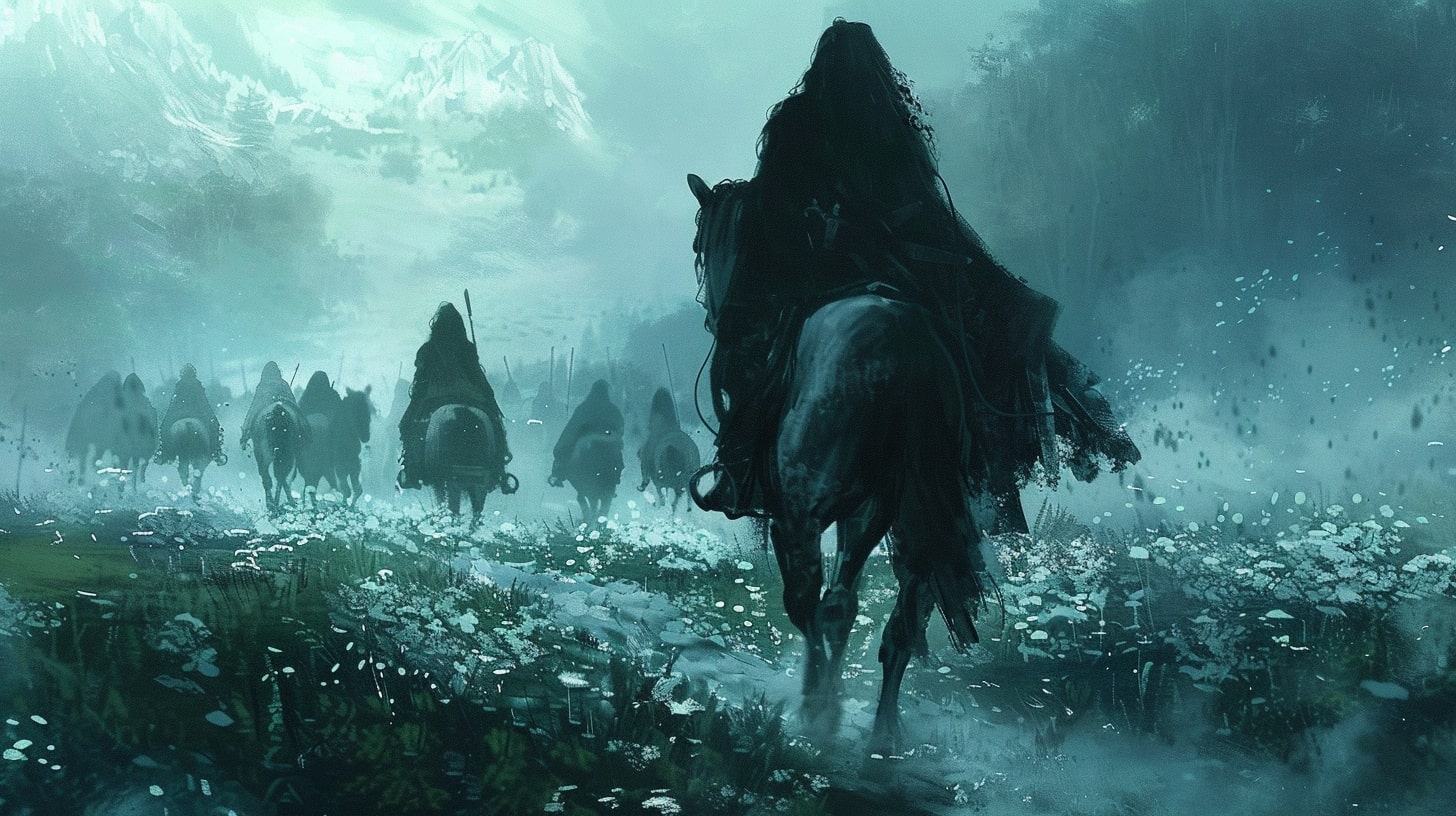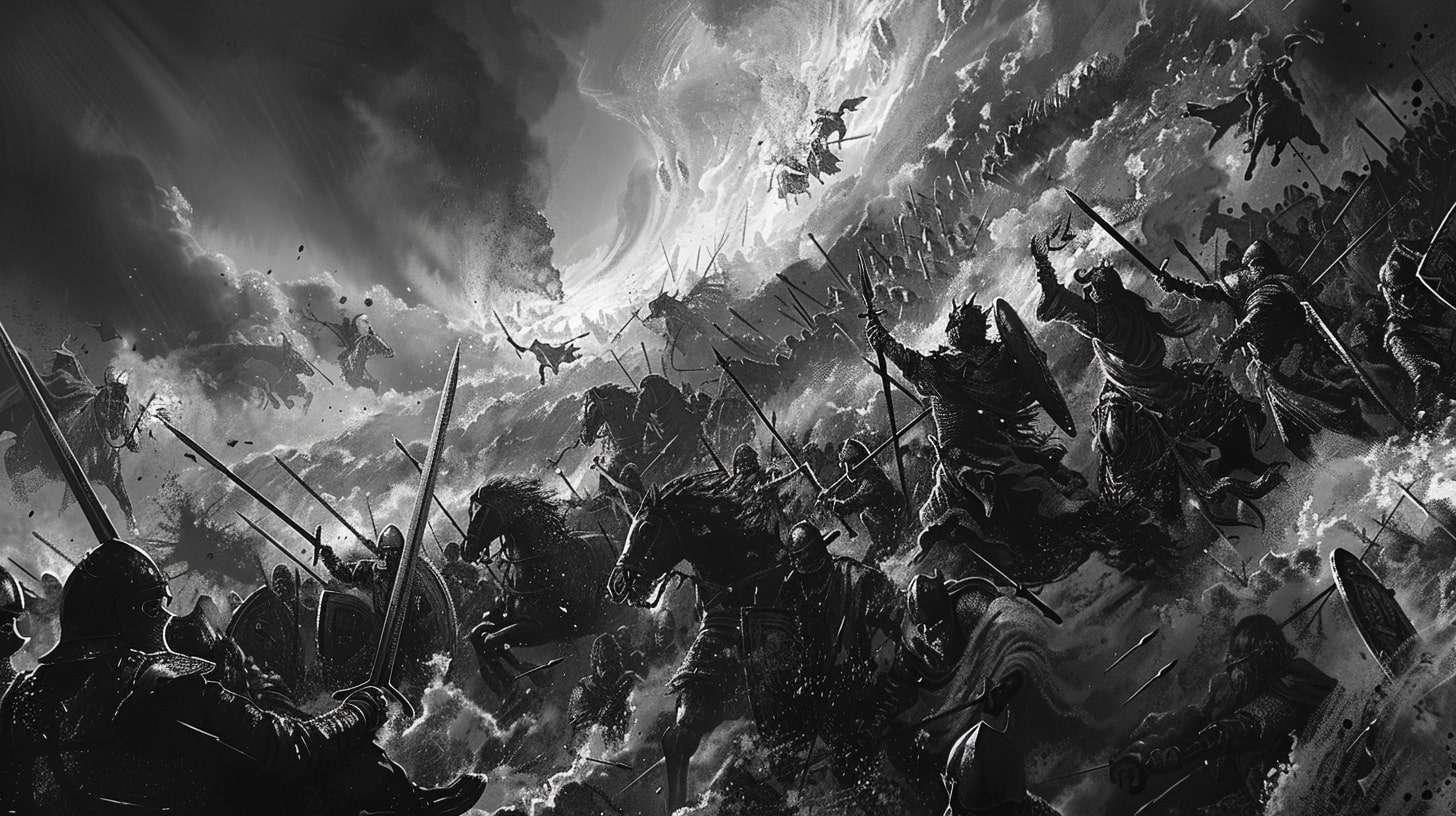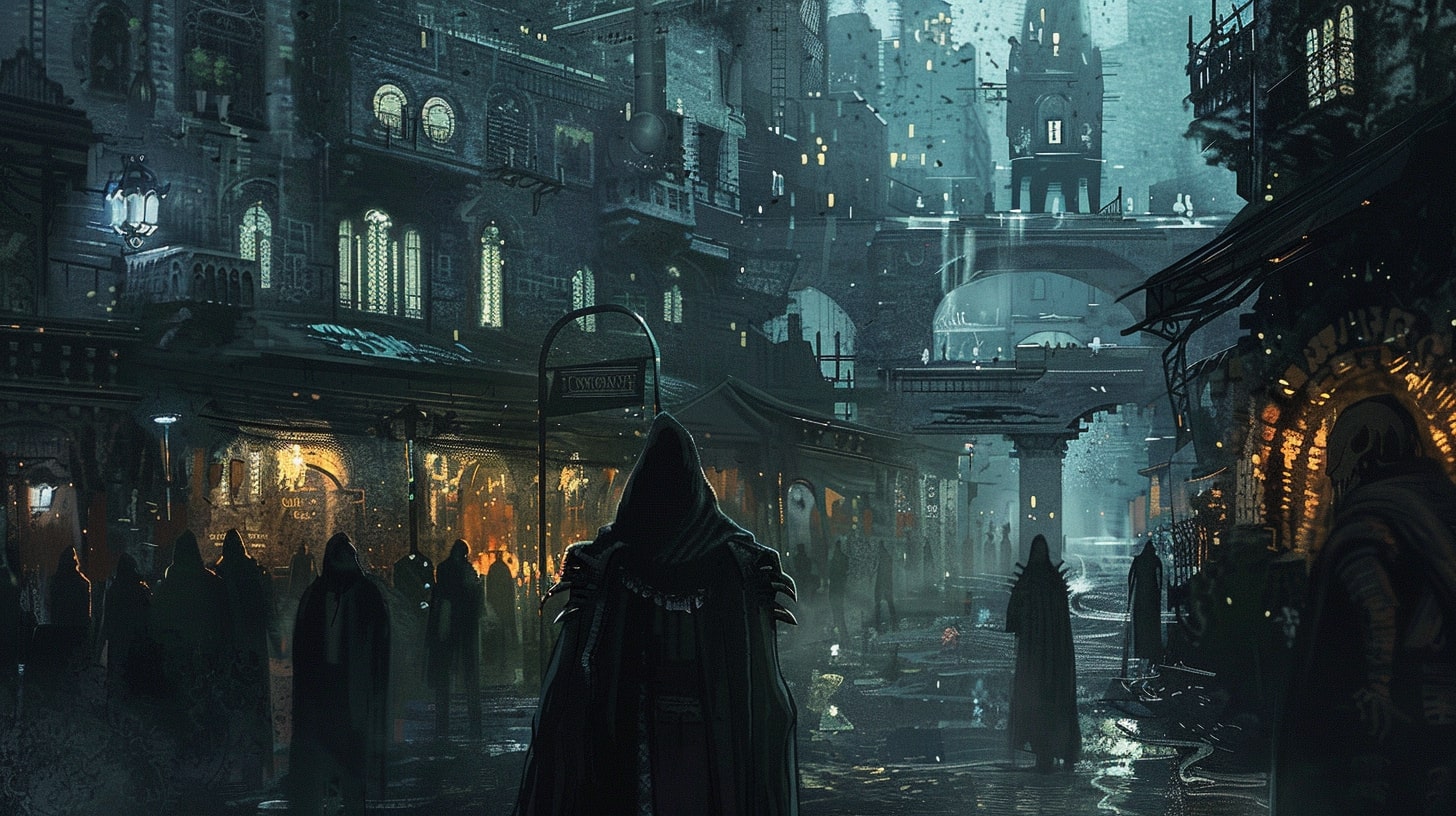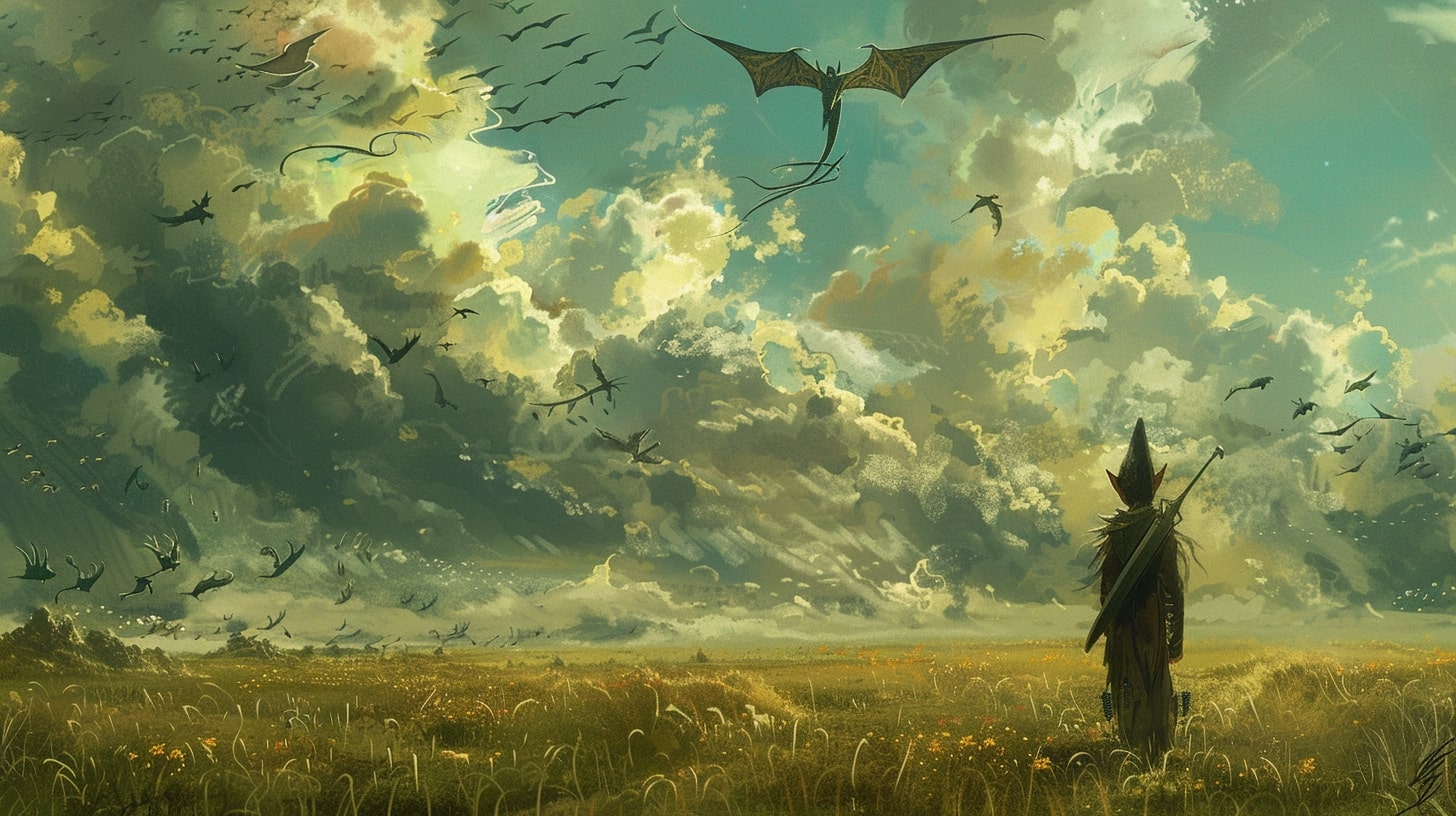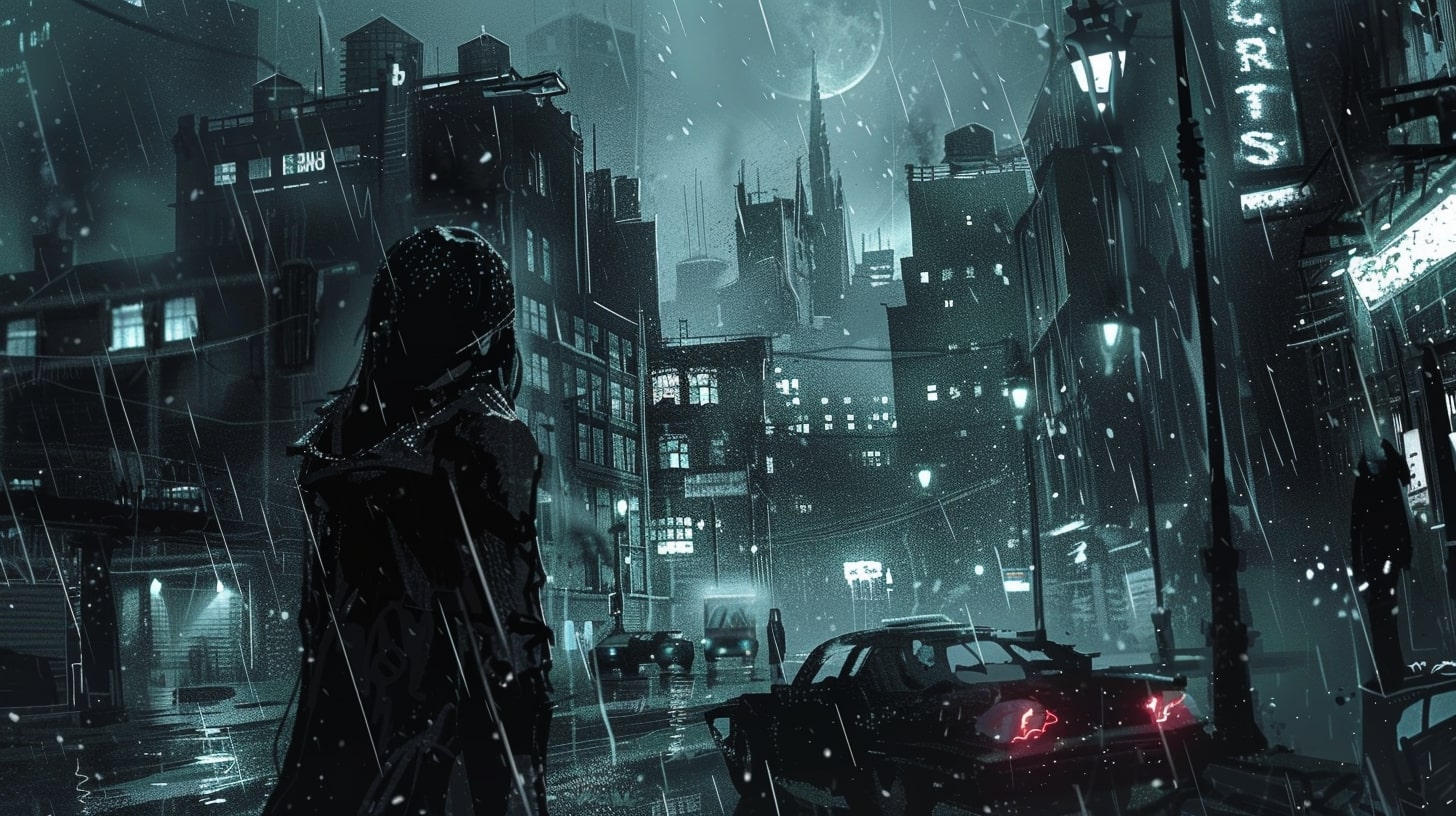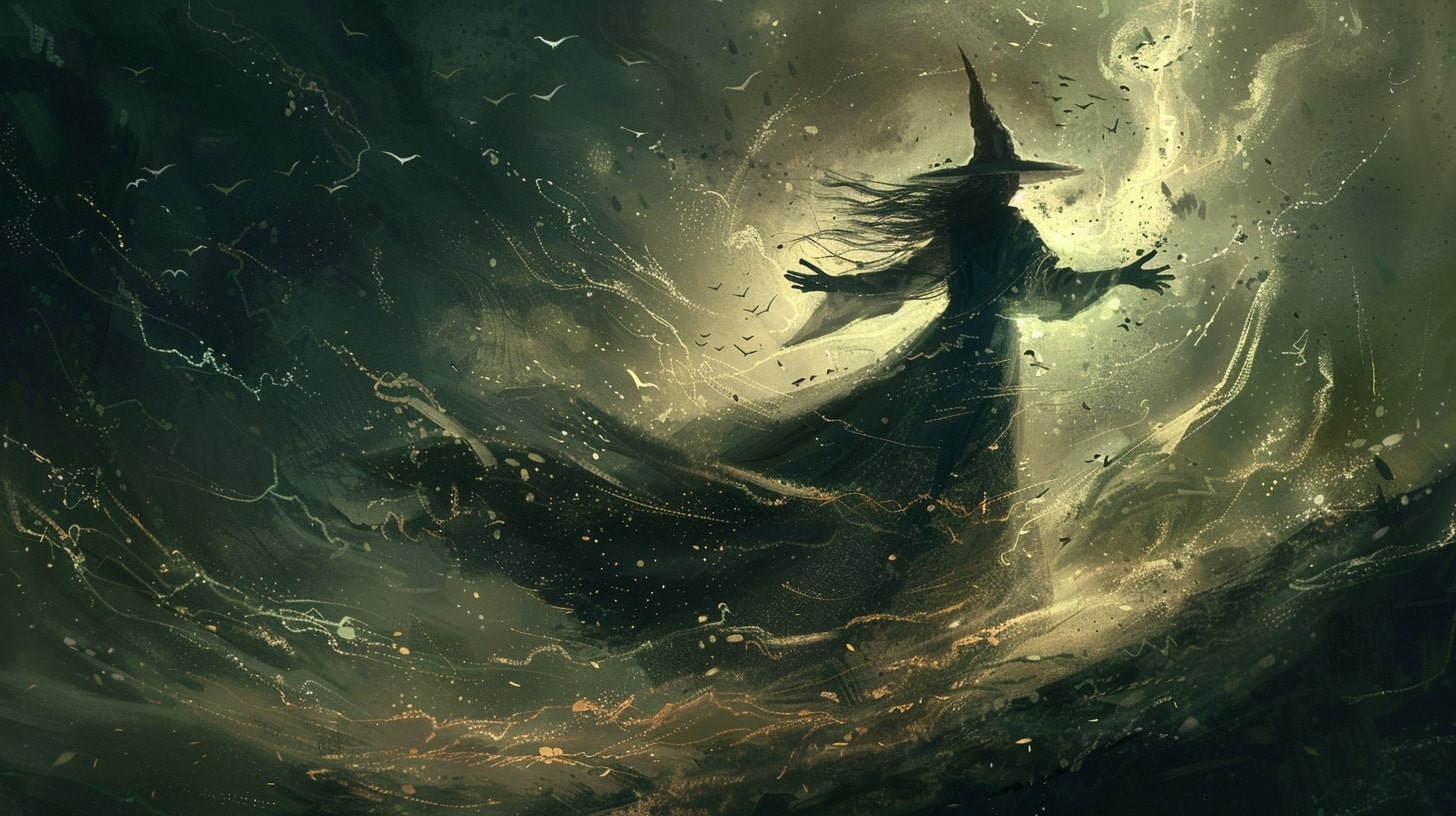The Magic of Writing Fantasy Novels
Welcome to the enchanting world of writing fantasy novels! Whether you're a seasoned writer or a budding author, the allure of creating fantastical realms and captivating characters is hard to resist.
When learning how to write fantasy novels there can be a lot to take in. Consider this guide a condensed version of everything that you'll want to add to your knowledge bank over time.
Why Write Fantasy Novels?
Writing fantasy novels allows you to unleash your imagination and transport readers to extraordinary worlds filled with magic, mythical creatures, and epic adventures. Here are a few reasons why you might find yourself drawn to the realm of fantasy:
Escape from Reality: Fantasy novels provide an escape from the mundane and allow both writers and readers to immerse themselves in captivating and imaginative realms.
Unlimited Creativity: When writing fantasy, you have the freedom to create your own rules and build unique worlds, magic systems, and creatures limited only by the boundaries of your imagination.
Exploration of Themes: Fantasy novels often explore universal themes such as good versus evil, heroism, coming-of-age, and the power of friendship. Through fantastical settings, these themes can be examined in fresh and thought-provoking ways.
Inspiration and Wonder: Fantasy novels have the power to inspire and instill a sense of wonder in readers. By crafting imaginative worlds and compelling stories, you have the opportunity to spark the imagination of others.
What Makes a Great Fantasy Novel?
A great fantasy novel is not only captivating but also resonates with readers long after they have turned the final page. Here are some elements that contribute to the success of a fantasy novel:
Engaging Worldbuilding: A well-crafted fantasy world is rich in detail, with its own history, cultures, and rules of magic. Focus on creating a vibrant and immersive setting that feels alive and coherent. For tips on building your fantasy world, check out our article on creating a fantasy world.
Memorable Characters: Compelling characters breathe life into your fantasy novel. Develop complex and relatable protagonists, intriguing antagonists, and a diverse cast of supporting characters. Dive deeper into character development with our article on developing fantasy characters.
Epic Storytelling: A great fantasy novel takes readers on a thrilling journey filled with twists, turns, and unexpected revelations. Craft a well-structured plot that keeps readers engaged and eager to discover what lies beyond the next page. Explore the hero's journey and other narrative techniques in our article on crafting fantasy quests.
Compelling Themes: Themes that resonate with readers add depth and meaning to your fantasy novel. Explore timeless themes such as love, sacrifice, power, and identity, weaving them seamlessly into your narrative.
Remember, writing a fantasy novel is a magical adventure in itself. Embrace your imagination, unleash your creativity, and let your words transport readers to new and wondrous realms.

How to Write Fantasy Novels: Building Your Fantasy World
To create an immersive and captivating fantasy novel, you must begin by building a rich and vibrant world for your story to unfold. This involves creating the setting and developing the rules of magic within your fantasy world.
Let's dive into the joys of worldbuilding.
Creating the Setting
The setting of your fantasy world is a crucial element that sets the stage for your story. It encompasses the landscapes, cities, towns, and any other locations your characters will encounter. When creating your setting, consider the following:
Geography: Determine the physical features of your world, such as mountains, forests, rivers, and deserts. These elements can shape the climate, resources, and overall atmosphere of your world.
Culture and Society: Develop the cultures, societies, and civilizations that inhabit your fantasy world. Consider their customs, traditions, social structures, and belief systems. This will add depth and authenticity to your world.
Technology and Magic: Determine the level of technology and the role of magic in your world. Are there advanced civilizations with complex machinery, or is magic the primary source of power? Establishing the boundaries and limitations of magic within your world is essential for maintaining consistency.
History and Lore: Create a rich history and mythology for your world. Develop legends, myths, and important events that have shaped the current state of your fantasy world. This history will provide a foundation for your story and add layers of complexity.
For more in-depth guidance on creating a fantasy world, check out our article on creating a fantasy world.
Developing the Rules of Magic
In most fantasy novels, magic plays a significant role. It adds intrigue, excitement, and possibilities to your story. When developing the rules of magic in your fantasy world, consider the following:
Types of Magic: Determine the different types of magic that exist in your world. Are there elemental spells, healing magic, or necromancy? Establishing these different types of magic will help you create a diverse and fascinating magical system.
Sources of Magic: Decide where the magic in your world comes from. Is it an innate ability possessed by certain individuals, or is it derived from external sources such as artifacts or ley lines? Defining the sources of magic will add depth to your world.
Limitations and Consequences: Establish rules and limitations for the use of magic. Are there certain spells that are forbidden or dangerous? What are the consequences of overusing magic? By defining these limitations, you can create tension and conflict within your story.
Magic Users: Determine who can use magic in your world. Are there specific individuals born with magical abilities, or can anyone learn magic with proper training? Consider the role of magic users in society and how they are perceived by others.
For more tips on creating a fantasy magic system, check out our article on creating a fantasy magic system.
By carefully crafting the setting of your fantasy world and establishing the rules of magic, you will lay a solid foundation for your story to unfold. These elements will immerse your readers in a captivating world filled with wonder, adventure, and limitless possibilities.

Crafting Memorable Characters
In the realm of fantasy novels, crafting memorable characters is key to captivating your readers and immersing them in your fantastical world. Your characters bring life to your story, and it's important to invest time and effort in developing them.
Let's explore two essential types of characters in fantasy novels: protagonists and antagonists, as well as supporting characters and sidekicks.
Protagonists and Antagonists
Protagonists are the heroes of your story, the main characters who drive the narrative forward. They are usually the ones with whom your readers will identify and root for throughout the journey.
Protagonists can possess a range of traits and abilities, from ordinary individuals thrust into extraordinary circumstances to chosen ones destined to save the world. It's crucial to make your protagonist relatable, complex, and capable of growth.
On the other side of the coin, we have the antagonists, who serve as the primary source of conflict for the protagonist. Antagonists can take various forms, such as villains, dark forces, or even internal struggles within the protagonist themselves. Developing well-rounded antagonists with believable motivations and understandable perspectives can add depth and complexity to your story.
When creating your protagonists and antagonists, consider their backgrounds, goals, strengths, weaknesses, and personal growth arcs. This will help bring them to life and make them more compelling for your readers. To delve deeper into character development, you may find our article on developing fantasy characters helpful.
Supporting Characters and Sidekicks
While protagonists and antagonists take center stage, supporting characters and sidekicks are equally important in enriching your fantasy world. Supporting characters can include allies, mentors, friends, or even rivals who aid or challenge the protagonist on their journey. These characters provide depth, emotional support, and additional perspectives to your story.
Sidekicks, on the other hand, often serve as loyal companions to the protagonist. They can be friends, magical creatures, or even inanimate objects with a personality. Sidekicks can bring humor, provide assistance, or offer crucial insights to aid the protagonist in their quest. Developing unique and memorable supporting characters and sidekicks can enhance the dynamics and relationships within your story.
When crafting supporting characters and sidekicks, consider their individual goals, personalities, and relationships with the protagonist. Each character should have their own motivations and contribute to the overall narrative in a meaningful way. Remember to provide them with their own character arcs and growth opportunities to make them more engaging for your readers.
By investing time and thought into crafting memorable characters, you breathe life into your fantasy world and create a deeper connection with your readers.
Whether it's the hero battling against evil or the loyal sidekick providing comic relief, each character plays a vital role in shaping your story. So, take the time to develop your protagonists, antagonists, supporting characters, and sidekicks, and watch your fantasy novel come to life.
Plotting Your Epic Journey
As you embark on writing your fantasy novel, it's essential to plot an epic journey that will captivate your readers. A well-crafted plot will keep them engaged and eagerly turning the pages. In this section, we'll explore two important aspects of plotting your fantasy novel: the Hero's Journey and plot twists and turns.
The Hero's Journey
The Hero's Journey is a classic narrative structure that has been used in countless fantasy novels. It follows the path of a protagonist who embarks on a transformative adventure, overcoming obstacles and facing inner and outer challenges.
In the Hero's Journey, your protagonist starts in their ordinary world, but an inciting incident occurs that calls them to action. They venture into the unknown, encountering allies, mentors, and adversaries along the way. Through trials and tribulations, they grow and develop, ultimately facing a climactic ordeal.
By familiarizing yourself with the stages of the Hero's Journey, you can create a compelling narrative that resonates with readers. Remember to add your own unique twists and elements to make your story stand out. For more in-depth guidance on crafting fantasy quests, check out our article on writing fantasy quests.
Plot Twists and Turns
To keep your readers engaged and surprised, incorporating plot twists and turns is essential. These unexpected developments add excitement, suspense, and depth to your story. Plot twists can challenge your characters' beliefs, reveal hidden motivations, or introduce unforeseen conflicts.
Consider introducing a red herring, a false lead that misdirects your readers and characters, keeping them guessing. Alternatively, you can use a reversal, where a character's situation or belief is suddenly overturned, creating a dramatic shift in the story. Plot twists can also involve the revelation of a secret, an unexpected betrayal, or a stunning cliffhanger at the end of a chapter.
When incorporating plot twists, ensure they are believable and serve the overall narrative. Foreshadowing subtle hints can help make the twist feel organic and satisfying. Remember, the purpose of a plot twist is to surprise and engage your readers, so use them strategically and sparingly.
By combining the Hero's Journey with well-executed plot twists and turns, you can create a fantasy novel that takes your readers on an unforgettable adventure. Embrace the art of storytelling and let your imagination soar as you craft a narrative that will keep your readers eagerly turning the pages.
Mastering the Art of Worldbuilding
To create a captivating fantasy novel, mastering the art of worldbuilding is essential. This involves crafting detailed and immersive settings, as well as developing rich cultures, societies, mythologies, and lore within your fictional world. In this section, we will explore two key aspects of worldbuilding: cultures and societies and mythology and lore.
Cultures and Societies
When building your fantasy world, consider the diverse cultures and societies that inhabit it. Each culture should have its own unique customs, traditions, beliefs, and values. These elements shape the behavior, interactions, and relationships of the characters within your story.
To create believable and well-rounded cultures, ask yourself questions such as:
- What are the social structures and hierarchies within each society?
- What are their political systems and governing bodies?
- What are their religious or spiritual beliefs?
- What are their cultural norms, rituals, and celebrations?
- How do they interact with other cultures in your world?
By developing these aspects, you can bring depth and authenticity to your fictional societies. It's important to consider the impact of these cultural elements on your characters' motivations, conflicts, and relationships.
Mythology and Lore
Another crucial aspect of worldbuilding is the creation of mythology and lore within your fantasy world. Mythology consists of the stories, legends, and myths that shape the beliefs and understanding of the characters in your world. Lore, on the other hand, encompasses the history, legends, and knowledge passed down through generations.
To develop compelling mythology and lore, consider the following:
- What are the creation myths or origin stories of your world?
- Are there legendary heroes or villains in your world's history?
- Are there prophecies or ancient artifacts that hold significance?
- What are the legends and tales that characters tell each other?
- Are there magical beings or creatures that exist in your world?
By creating a rich tapestry of mythology and lore, you can add depth and intrigue to your fantasy world. These stories and legends can influence the beliefs, motivations, and quests of your characters, driving the plot forward.
Remember that worldbuilding is an ongoing process that evolves as you write your novel. Continuously refine and expand your fictional world, ensuring that every aspect aligns with the overall story you want to tell. By mastering the art of worldbuilding, you can create a vivid and immersive fantasy novel that readers will be eager to explore.
Continue your journey of writing fantasy novels by checking out our article on creating a fantasy magic system, where you can learn how to craft unique and intriguing systems of magic in your world.

Writing Engaging Dialogue
Dialogue is a critical element in writing fantasy novels as it brings your characters to life and drives the plot forward. Engaging dialogue can captivate readers, making them feel immersed in the fantastical world you've created. In this section, we will explore two important aspects of writing dialogue in fantasy novels: capturing the fantasy voice and balancing dialogue and description.
Capturing the Fantasy Voice
To create an authentic and immersive fantasy world, it's important to capture the unique voice of your characters. The way they speak should reflect the setting, time period, and culture of your fantasy world. Here are some tips to help you capture the fantasy voice in your dialogue:
Use archaic language: Incorporate words and phrases that evoke a sense of antiquity or otherworldliness. However, be careful not to overdo it and make the dialogue difficult to understand.
Incorporate cultural nuances: Consider the customs, beliefs, and social hierarchy of your fantasy world. Reflect these elements in the way characters address each other and the level of formality in their speech.
Create distinct speech patterns: Give each character a unique way of speaking. This can include accents, dialects, or specific vocabulary that reflects their background or role in the story.
Use metaphors and imagery: Fantasy worlds often have their own mythology and lore. Incorporate these elements into the dialogue to add depth and richness to the conversations.
By capturing the fantasy voice in your dialogue, you can transport readers into your imaginative world and make the characters feel more authentic and believable.
Balancing Dialogue and Description
While dialogue is important for advancing the story, it's crucial to find the right balance between dialogue and description. Too much dialogue can make the narrative feel flat, while too much description can slow down the pace of the story. Here are some tips to help you strike the right balance:
Reveal character traits: Use dialogue to reveal the personalities and motivations of your characters. Show their emotions, beliefs, and conflicts through their words and interactions.
Move the plot forward: Dialogue should not only provide information but also propel the story forward. Use conversations to introduce conflicts, reveal secrets, or create plot twists.
Show, don't tell: Instead of relying solely on dialogue to convey information, use description and action to enhance the scene. Show the characters' body language, facial expressions, and surroundings to add depth and context to the dialogue.
Avoid lengthy monologues: While monologues can be powerful, be cautious about using them excessively. Break up long speeches with interruptions, reactions from other characters, or brief descriptions to maintain reader engagement.
Remember, dialogue should sound natural and authentic. Read your dialogue aloud to ensure it flows smoothly and sounds like real conversation. By balancing dialogue and description effectively, you can create a dynamic and engaging narrative for your fantasy novel.
Writing dialogue in a fantasy novel requires careful consideration of the fantasy voice and finding the right balance between dialogue and description. By taking these aspects into account, you can create compelling conversations that bring your characters and your fantastical world to life.
Weaving Magic Through Description
To truly immerse your readers in your fantasy world, it's important to weave magic through your descriptions. By creating vivid imagery and effectively describing magical beings and objects, you can bring your fantastical elements to life and captivate your readers' imagination.
Creating Vivid Imagery
When writing fantasy novels, it's essential to paint a vivid picture in the minds of your readers. Use descriptive language to bring your settings, characters, and magical elements to life. Engage the senses by incorporating sight, sound, smell, taste, and touch into your descriptions.
For example, instead of simply stating that a character entered a magical forest, you could describe the forest as "a mystical realm of towering emerald trees, their leaves shimmering with iridescent hues. The air was thick with the fragrance of blooming flowers, and the soft melody of unseen creatures echoed through the enchanted glade."
Remember to vary your sentence structure and use similes and metaphors to add depth and richness to your descriptions. This will allow your readers to fully immerse themselves in your fantastical world.
Describing Magical Beings and Objects
In a fantasy novel, magical beings and objects play a significant role in shaping the story. When introducing these elements, it's important to provide vivid and detailed descriptions that capture their essence and uniqueness.
When describing magical beings, consider their physical appearance, personalities, and any special abilities they possess. Use evocative language to highlight their otherworldly qualities. For example, you could describe a mythical creature as "a majestic dragon, its scales shimmering like molten gold, and eyes that glowed with an ancient wisdom."
Similarly, when describing magical objects, focus on their appearance, purpose, and the enchantments they possess. Use sensory details to engage your readers' imagination. For instance, you could describe a powerful artifact as "a gleaming crystal orb, pulsating with a soft, ethereal light that whispered of forgotten prophecies and untold secrets."
By crafting detailed descriptions of magical beings and objects, you can transport your readers to a world filled with wonder and enchantment.
Remember to always show, not tell, when describing your fantastical elements. Allow your readers to experience the magic through your words and let their imaginations soar.
As you continue your journey of writing a fantasy novel, keep in mind the importance of creating vivid imagery and describing magical beings and objects with precision and creativity. By doing so, you will transport your readers to an extraordinary realm where the possibilities are endless.
Editing and Polishing Your Fantasy Novel
Congratulations on completing your fantasy novel! Now it's time to polish and refine your work to ensure it shines. Editing is a crucial step in the writing process, as it helps you identify and correct any errors, inconsistencies, or areas that need improvement. In this section, we will explore two important aspects of editing and polishing your fantasy novel: the importance of revisions and seeking feedback and beta readers.
The Importance of Revisions
Revising your fantasy novel is an essential step in creating a polished and well-crafted story. During the revision process, you have the opportunity to enhance your plot, develop your characters further, and refine your writing style. Here are a few key steps to consider when revising your fantasy novel:
Take a break: Step away from your manuscript for a while before starting the revision process. This break will allow you to approach your work with fresh eyes and a renewed perspective.
Read and evaluate: Read through your entire novel carefully, focusing on plot coherence, character development, pacing, and overall storytelling. Take note of any areas that need improvement or clarification.
Address structural issues: Identify any structural issues, such as plot holes or inconsistencies, and make the necessary revisions. Ensure that the story flows smoothly and that the pacing keeps readers engaged.
Refine characters: Evaluate your characters' arcs, motivations, and relationships. Ensure that their actions and dialogue are consistent and contribute to the overall story. Develop well-rounded and relatable characters that readers can connect with.
Enhance worldbuilding: Pay attention to the details of your fantasy world. Make sure the setting is vividly described, the rules of magic are clear and consistent, and the cultures and societies are well-developed. Refer to our article on building a fantasy world for more tips.
Edit for clarity and style: Polish your prose by eliminating unnecessary words, improving sentence structure, and enhancing the clarity of your writing. Ensure that your descriptions are vivid and your dialogue is engaging. For guidance on writing fantasy dialogue, check out our article on writing fantasy dialogue.
Proofread: Carefully proofread your manuscript for grammar, punctuation, and spelling errors. Pay attention to consistency in formatting, capitalization, and naming conventions.
Remember, the revision process may require multiple rounds of editing. Take your time and be open to constructive feedback to make your fantasy novel the best it can be.
Seeking Feedback and Beta Readers
Once you've completed your revisions, it's beneficial to seek feedback from others. Outside perspectives can provide valuable insights and help you identify areas that may need further improvement. Consider the following steps when seeking feedback for your fantasy novel:
Join writing communities: Connect with fellow writers through online forums, writing groups, or workshops. Engage in discussions, share your work, and offer to provide feedback to others. This exchange of ideas can be incredibly valuable in improving your writing.
Find beta readers: Beta readers are individuals who can provide feedback on your entire manuscript. Look for readers who enjoy the fantasy genre and are willing to provide honest and constructive feedback. Their insights can help you gauge the strengths and weaknesses of your novel.
Ask specific questions: When sharing your work with beta readers, provide them with specific questions or areas of concern you would like them to focus on. This will help guide their feedback and ensure you receive targeted input.
Consider professional editing: If you have the means, hiring a professional editor can provide you with an objective assessment of your novel. They can offer guidance on overall structure, character development, and writing style.
Remember, feedback is subjective, and not all suggestions may align with your vision for the story. Use feedback as a tool for improvement, but ultimately make decisions that align with your creative vision.
By embracing the revision process and seeking feedback from others, you can refine your fantasy novel and take it to new heights. Keep honing your craft, exploring new writing techniques, and don't forget to enjoy the journey along the way. Happy writing!


